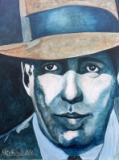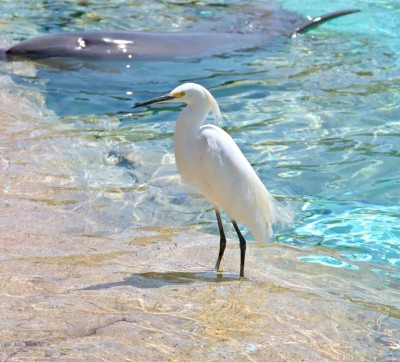The begining - Early Activists
After the Civil War blacks suffered greatly in the South. African Americans became targets for enraged white southerners. Lynchings killed hundreds of blacks every year.

Al Sharpton is an American Baptist minister, civil rights activist, and radio talk show host. In 2004, he was a candidate for the Democratic nomination for the U.S. presidential election. Outspoken and sometimes controversial, Sharpton has become a leading figure in the fight against racial prejudice and injustice. He hosts his own radio talk show, Keepin’ It Real, and he makes regular guest appearances on Fox News, CNN, and MSNBC.
Alfred Charles Sharpton Jr. was born October 3, 1954 in Brooklyn, New York into an upper middle class family. Even at an early age, Al was a gifted speaker and was touted as “the Wonder Boy Preacher” by age 7, when he toured with gospel singer Mahalia Jackson and F.D. Washington, the Pentecostal minister of the Washington Temple Church of God in Christ in Brooklyn. Washington personally ordained Al Sharpton a minister at the young age of nine. Sharpton’s parents divorced when he was 10, leaving Sharpton and his mother impoverished. In 1969 he began his affiliation with Jesse Jackson, who appointed him youth director of Operation Breadbasket, a group that boycotted businesses which did not hire blacks.
Sharpton graduated from Samuel J. Tilden High School in Brooklyn, and attended Brooklyn College, dropping out after two years in 1975, and had no formal seminary training since.
In 1971 Al Sharpton established the National Youth Movement, an organization that sought to fight drug use and to raise money for impoverished youth. He would lead the group for the next 17 years. During this time, Al Sharpton began working for the entertainer James Brown where he met his future wife, Kathy Jordan, a backup singer for Brown. Sharpton and Jordan married in 1980, and separated in 2004. Al Sharpton later worked for boxing promoter Don King. He made an unsuccessful run for the New York State Senate in 1978.
During the 1980s, Sharpton got involved in many high-profile cases in the New York City area that affected the African American community and led several protests against what he believed were injustices and incidents of racial discrimination. He helped keep media scrutiny on the racially based murder of a black teenager named Michael Griffith in 1986.
The following year Al Sharpton became embroiled in the Tawana Brawley case, a case that would haunt him for years. Brawley, an African American teenager, claimed that she was raped by a group of white men, some of whom were allegedly police officers. The case was later dismissed by a grand jury, which reportedly concluded that the teenager had made up the story. But this came after months of media frenzy around the case, largely encouraged by Sharpton. He was even sued by the district attorney working the case for making slanderous remarks. Sharpton was found guilty and fined for his comments.
On August 23, 1989, four African-American teenagers were beaten by a group of 10 to 30 white youths in Bensonhurst, a Brooklyn neighborhood. One Bensonhurst resident, armed with a handgun, shot and killed sixteen-year-old Yusef Hawkins. In the weeks following the assault and murder, Rev. Al Sharpton led several marches through Bensonhurst. The first protest, just days after the incident, was greeted by neighborhood residents shouting "Niggers go home" and holding watermelons to mock the demonstrators.
In May 1990, when one of the two leaders of the mob was acquitted of the most serious charges brought against him, Sharpton led another protest through Bensonhurst. In January 1991, when other members of the gang were given light sentences, Sharpton planned another march. On January 12, 1991, Sharpton escaped serious injury when he was stabbed in the chest by Michael Riccardi while Sharpton was preparing to lead the protest through the Brooklyn neighborhood. Riccardi was drunk and was apprehended by Sharpton's aides and handed over to police who were present for the planned protest. Sharpton, although forgiving his attacker and pleading for leniency on his behalf, filed suit against New York City alleging that the many police present had failed to protect him from his attacker. In December 2003 he finally reached a $200,000 settlement with the city just as jury selection was about to start.
In 1991, Sharpton and a group of activists that were committed to the principles of non-violent direct action and civil disobedience founded the National Action Network. Rev. Sharpton has served as the organization’s president since its founding. The National Action Network (NAN) is one of the leading civil rights organizations in the nation, with numerous local chapters around the country. Using the motto "No Justice, No Peace", NAN works within the spirit and tradition of Dr. Martin Luther King, Jr. to promote a modern civil rights agenda that includes the fight for social justice and one standard of justice and decency for all people regardless of race, religion, national origin, and gender. Every Saturday morning since its founding, the National Action Network holds its weekly live action rally and radio broadcast which has been critical to its development.
Rev. Al Sharpton has led a variety of community projects in Harlem, including The program, dubbed "Cash for Guns." Beginning in 2008 police officers began working with city churches to purchase hand guns from the community. "It's showing a growing cooperation in the community," said Sharpton. "It shows the community is willing to work with the police, even if we question some of their tactics." The program allows people to drop off a handgun for a $200 bank card with "no questions asked" at designated Harlem churches.
Speaking at the Michael Jackson memorial service on July 7, 2009, Sharpton received a standing ovation for a rousing eulogy, which included telling Jackson's children from the stage, "Wasn't nothing strange about your Daddy. It was strange what your Daddy had to deal with. But he dealt with it anyway."
Don't miss a single page. Find everything you need on our complete sitemap directory.
Listen or read the top speeches from African Americans. Read more
Read about the great African Americans who fought in wars. Read more
African Americans invented many of the things we use today. Read more
Thin jazz, think art, think of great actors and find them here. Read more
Follow the history of Black Americans from slave ships to the presidency. Read more
Olympic winners, MVPS of every sport, and people who broke the color barrier. Read more
These men and women risked and sometimes lost their life to fight for the cause. Read more
Meet the people who worked to change the system from the inside. Read more

Visit my RedBubble page and use Michael Arnold Art to create greeting cards, T-shirts, mugs, and more.

The variety and impressive numbers of mammals, birds and marine wildlife in Alaska draw visitors from all over the world. For some travelers, Alaska is wilderness, at least compared to what they may know from back home. The pristine wilderness of Alaska is, perhaps, the last vestige of thriving populations of North American wildlife. Where else can you see polar bears, bald eagles, blue and humpbacked whales, gray wolves, grizzly bears, orcas, lynx, moose, and hundreds of other rare and endangered species in their original and undisturbed natural habitats?

Enjoy our website filled with original signed acrylic paintings by award winning Artist Michael Arnold. Located in Citrus County Florida, Michael Arnold is a the editor at the Citrus County Chronicle. When he's not busy being an editor, he is an avid artist who enjoys painting in a variety of styles. We hope you take the time to click on each image to see a larger view and to learn what the artist, Michael Arnold has to say about his paintings.

As dog owners and people who care deeply for animals and wildlife, we wanted our Dog Encyclopedia to be a website that could empower pet owners to create the most positive, loving environment for their dogs. Dog Encyclopedia realizes that owning a dog is like adding a new member to your family.

Floridian Nature has everything your are looking for in Florida nature. The wildlife of Florida is rich and varied, yet most of us are familiar with only a dozen or so species: the "well known endangered species such as manatees and panthers; those, like raccoons and squirrels, that have adapted to urban environments; the frightening alligators and black bears; and those like the armadillo who can't seem to cross the road. Yet they are just a few of the many animal species found in Florida.
